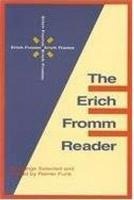Erich Fromm is probably best remembered as the author of Escape from Freedom and The Art of Loving, but he also wrote extensively on social psychology, social theory, and religion and was the founder of what he called "democratic decentralizing socialism." His role within this ideology as a socialist-humanist involved challenging Freud's vision of human existence, setting forth radical alternatives to traditional psychoanalytic tenets, introducing Marx's humanism into psychoanalytic theory and, perhaps most valuably, attending to the reality of alienation in social psychology. It is this last contribution, especially, that makes Fromm's thought so relevant today because it explains how capitalist society impacts human existence.
This reader provides a concentrated introduction to the full range of Fromm's writing. The concise introductions to the texts guide the reader and reveal the inner logic of Fromm's words. The Fromm who emerges from these pages is never simplistic and always meaningful. He exhibits the true genius of an original thinker in seeing the connections between overlapping knowledge from many different fields.

